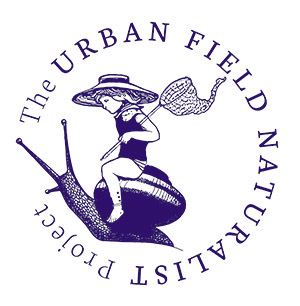
Sunrise sans "Salmon"
Ryan Keith
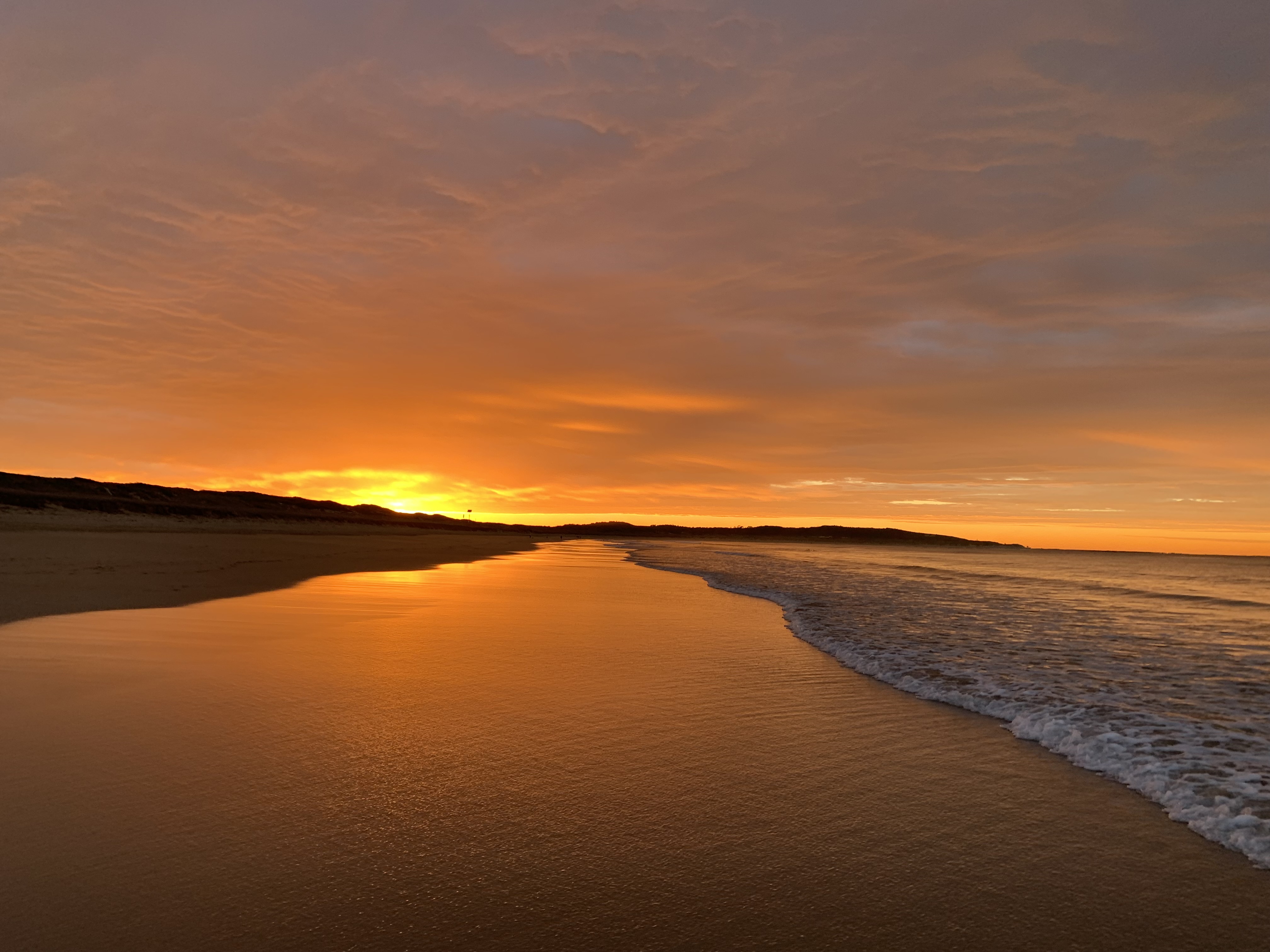
I cherish sunrises… so much, in fact, that I’ve often wanted to keep them to myself. For years, I didn’t photograph them, instead believing they would best live on in my memories. I also thought that only those who sought out sunrises deserved to see them. I still feel like a sunrise is an irreducible, ephemeral, embodied experience that somehow evades capture by pixels or words. Yet here’s a picture, and here’s a story. I’m ready to share now.
Ironically, it was the very sunrises I selfishly hoarded in my mind that gradually reminded me I am part of an unending chain of shared experience. They have become a means of ritually connecting with other beings stretching back through time immemorial. When we watch the Sun rise, we partake in a practice that has been performed for all of human (and nonhuman) history. I think about that as the sky brightens with the promise of dawn. Though our lives and world(s) are in a constant state of flux, the same celestial object appears from behind the horizon each and every morning. It always has and always will... at least for as long as I care to comprehend. Just as the sunrise stretches backward into the storied past, it also reaches forward inexorably to an unknown future. On and on it goes.
Yet we experience the sunrise each day as a wholly unique moment, “in the moment”… then the moment is gone. When I stand alone on the sand, ankles numbed by the bracing sea, I’m keenly aware this particular sunrise is being skipped or otherwise ignored by many other people in their nice warm homes. Hence my view is mercifully uninterrupted. I give the ochre-coloured sky my full and undivided attention. In my eyes, it deserves nothing less… though I must admit it’s not actually the sunrise that brought me to this beach.
Sunrises are seldom overlooked by nonhuman beings. Knowing this, I find dawn an ideal time to seek out interactions with many animals, especially when we’re both unbothered by the rest of humanity. On this day, I hope to sync up and meet up with one being in particular: Beriwugan (bee-ree-woo-gan). Beriwugan is a fish, commonly known as the Australian salmon (Arripis trutta), though the English language does just as bad a job of capturing Beriwugan as it does the essence of a sunrise. That’s one reason why I now prefer the D’harawal word.
Beriwugan is not a close relative of the orange-fleshed Atlantic salmon (Salmo salar), but when the English came to this country, they noticed a superficial resemblance and called it “salmon” all the same. Beriwugan’s scientific name is no better: the species epithet, ‘trutta’, literally means “trout” in Latin. But Beriwugan is no trout; the Brits brought their trout here in 1864, releasing them in freshwater streams. Beriwugan, by contrast, has been swimming in these salty waters for some 700,000 years.
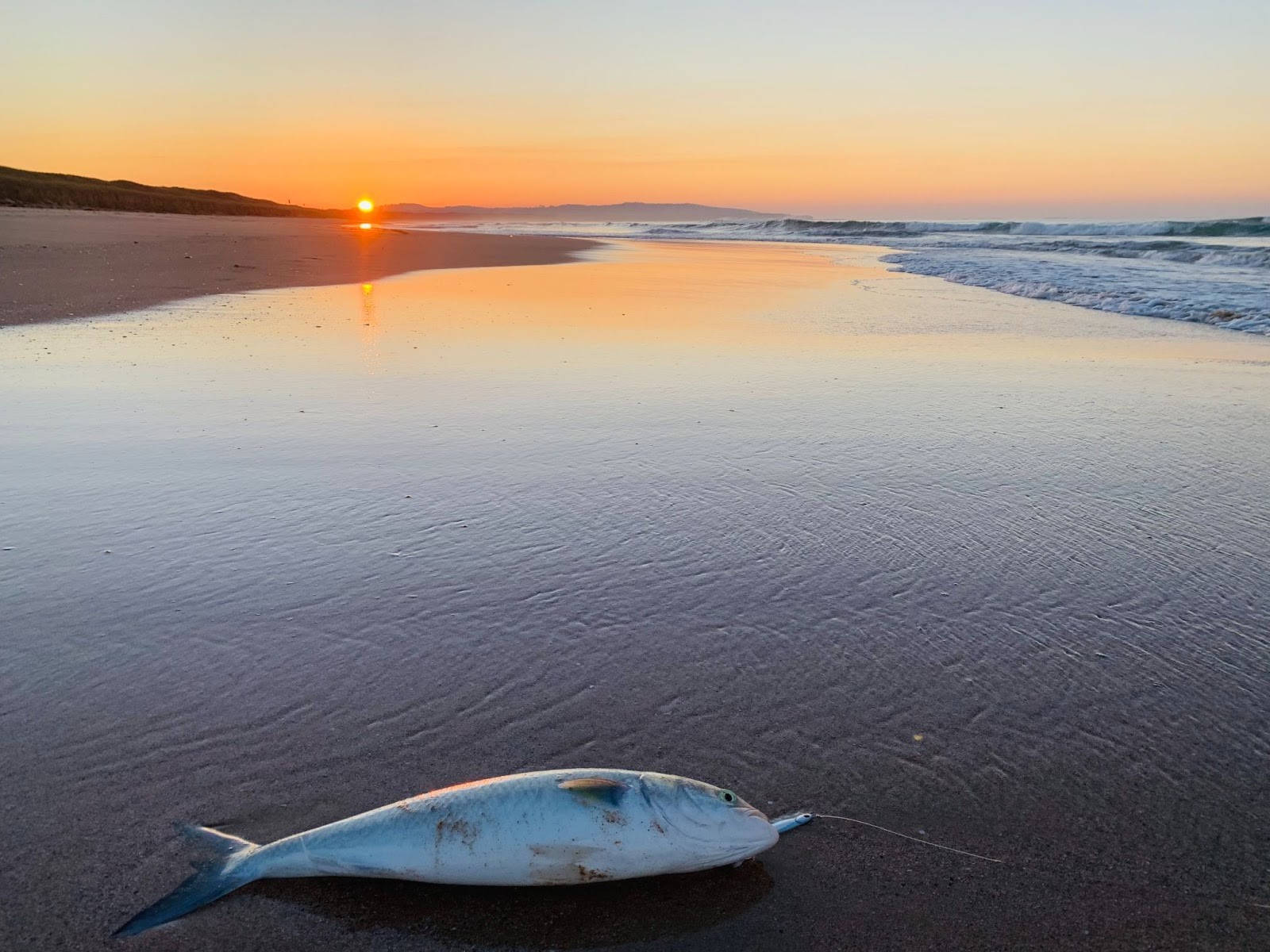
Throughout my life – a fleeting instant in Beriwugan’s history – I have studied the habits of this animal. I have crossed paths with Beriwugan when it is so voraciously hungry that it corrals prey into the breakers, carving through the whitewater to gobble greedy mouthfuls. I have also seen Beriwugan completely disinterested in food, swimming slowly in broad circles as it spawns with thousands of its kind beyond the cresting waves. Over time, I have summoned the hubris to think I know what Beriwugan will do next. Occasionally, I am reminded that I still have much to learn. This is one such occasion.
Today, Beriwugan is nowhere to be seen. Like the English language, I cannot capture it. All I have is the sunrise, but that is more than enough for me. A wave retreats, leaving a mirror-like slick of water in its place, which reflects the fiery sky. I drink the scene in, squeezing the last drop through the lens of my camera for you to enjoy. Tomorrow will bring another sunrise and another chance to meet Beriwugan. In the meantime, I leave you with an image of a glowing moment in time. We deserve this gift.
This is the third in a series of semi-regular longform stories.
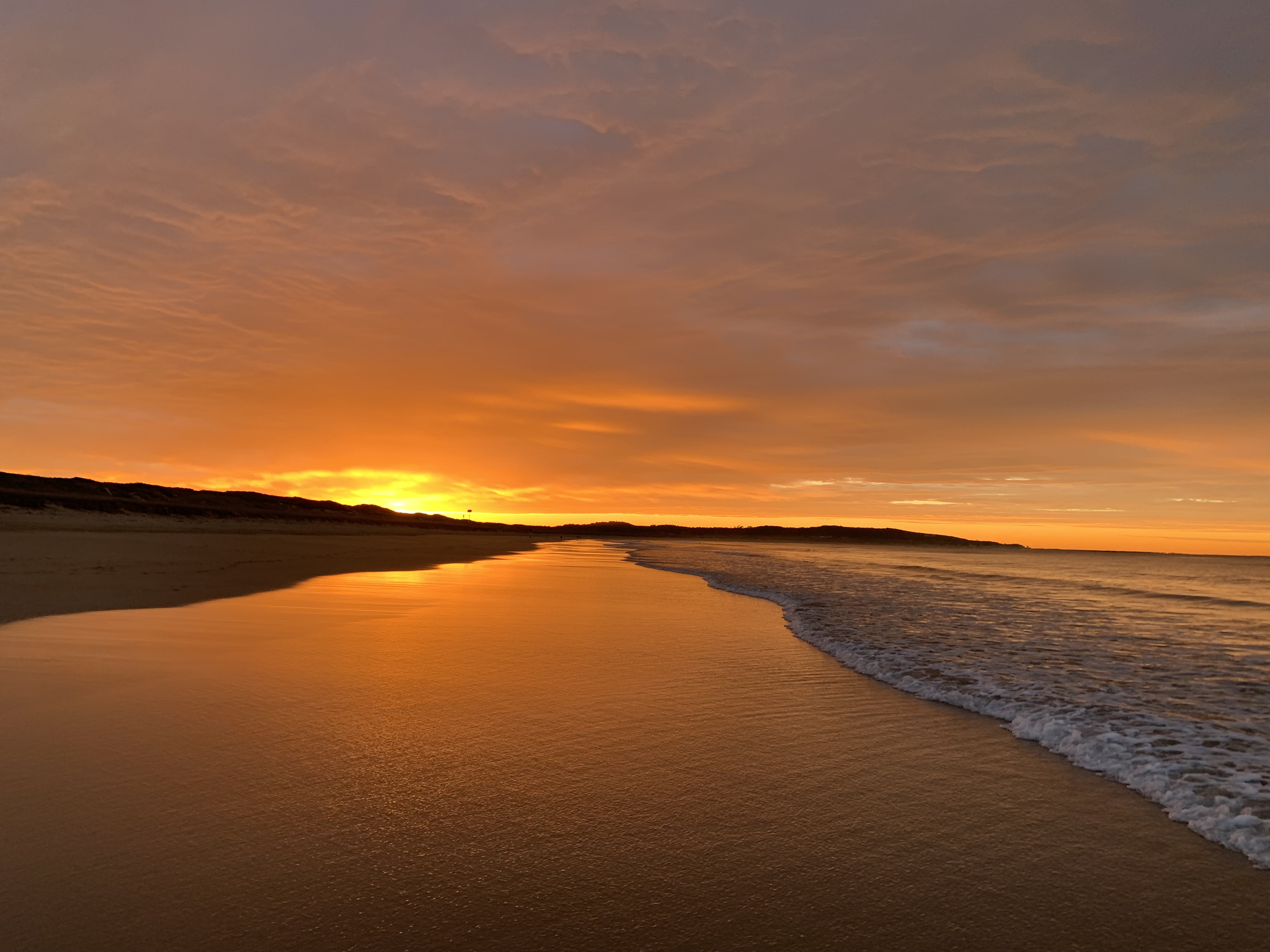
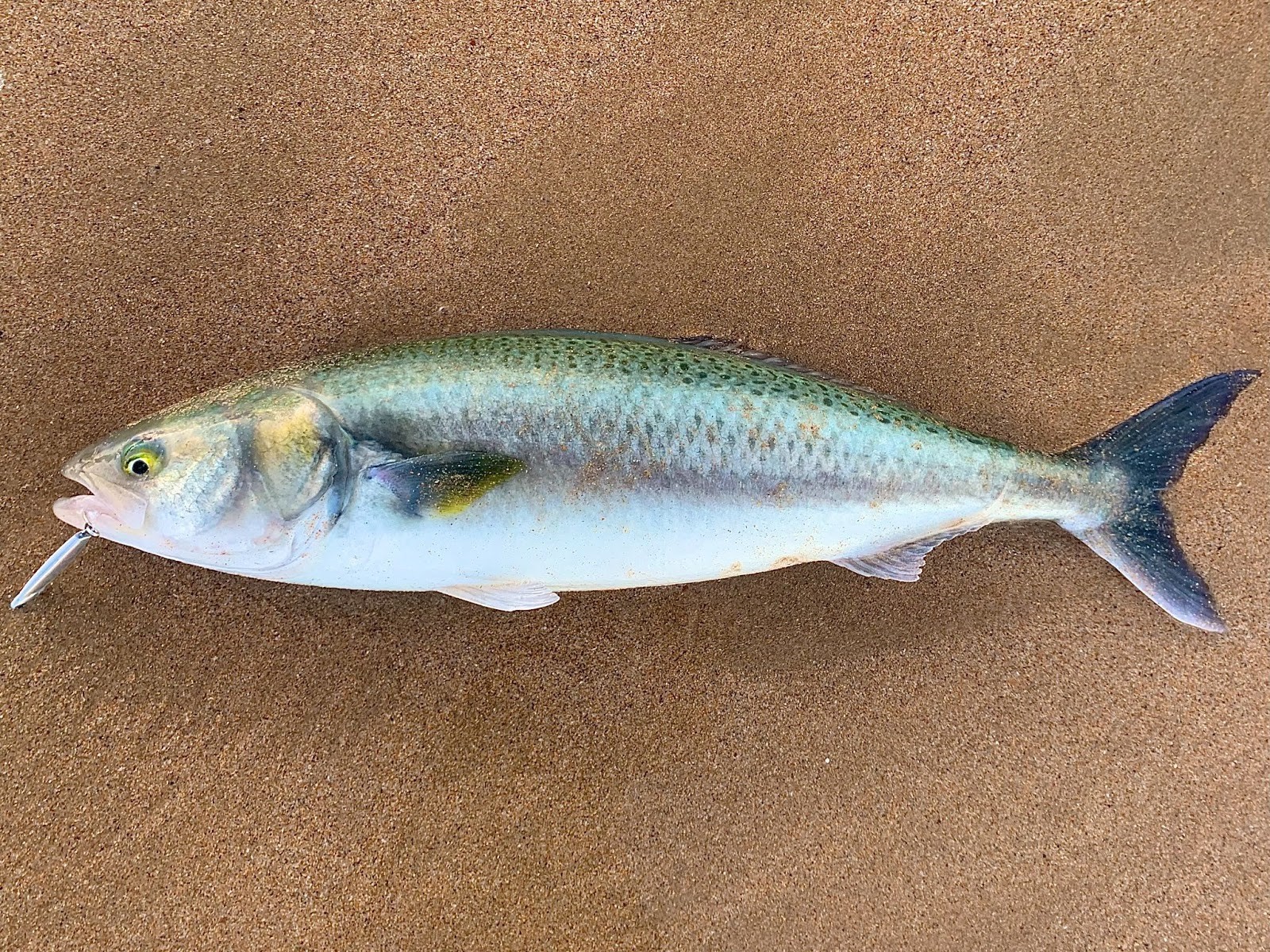
Author bio: Ryan is an educator and research scientist from Girrawee—‘place of white cockatoos’—in Sydney’s south.
W. drryankeith.com
T. @DrRyanKeith